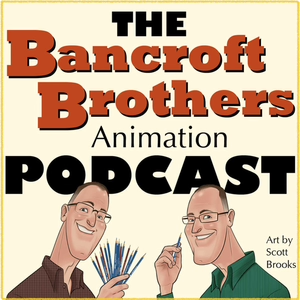
Punch-Drunk Love (2002) dir. Paul Thomas Anderson
05/07/21 • 77 min
Adam Sandler’s intensity as a character and actor garners much love in this discussion of autism, comedy and romance. The relationship of the neurodivergent character with his neurotypical siblings is discussed in terms of its pain and discomfort, and the character’s romantic relationship as an antidote to this. The character’s chaos meets a certain otherness in Emily Watson’s character, perhaps her Englishness featuring as Other. The discussion debates whether the film sets and colour palette, and the spatial arrangement of the scenes, foreground an autistic sensibility. Equally significant in this discussion is the eclectic soundtrack including Shitmat.
Discussants: Alex, David, Georgia.
Adam Sandler’s intensity as a character and actor garners much love in this discussion of autism, comedy and romance. The relationship of the neurodivergent character with his neurotypical siblings is discussed in terms of its pain and discomfort, and the character’s romantic relationship as an antidote to this. The character’s chaos meets a certain otherness in Emily Watson’s character, perhaps her Englishness featuring as Other. The discussion debates whether the film sets and colour palette, and the spatial arrangement of the scenes, foreground an autistic sensibility. Equally significant in this discussion is the eclectic soundtrack including Shitmat.
Discussants: Alex, David, Georgia.
Previous Episode

Autism Through Cinema: Preview
Welcome to the Autism Through Cinema podcast!
Next Episode

Good Time (2017) dir. The Safdie Brothers, & Music (2021) dir. Sia
Can non-autistic actors play autistic characters motivates this discussion which takes as its focus the Safdie brothers’ film Good Time, and references Sia’s Music along the way. The problematic performance of a learning disability in Music is considered in its reductive and child-like presentation. We discuss whether Nick in Good Time, a character with a learning disability played by Ben Safdie, can offer something more positive as a vehicle for exploring autistic meltdowns and masking. Or is he, like many autistic characters, a narrative prosthesis, grafted on to a plot essentially about the drama of crime. Does institutional care offer support away from his brother’s exploitation, or confinement and a restricted life. Anxiety generated through the pace and soundtrack including tracks by Oneohtrix Point Never, and the Iggy Pop song The Pure and the Damned.
Discussants: Alex, David, Georgia, Janet, John-James.
If you like this episode you’ll love
Episode Comments
Featured in these lists
Generate a badge
Get a badge for your website that links back to this episode
<a href="https://goodpods.com/podcasts/autism-through-cinema-210159/punch-drunk-love-2002-dir-paul-thomas-anderson-22292547"> <img src="https://storage.googleapis.com/goodpods-images-bucket/badges/generic-badge-1.svg" alt="listen to punch-drunk love (2002) dir. paul thomas anderson on goodpods" style="width: 225px" /> </a>
Copy





